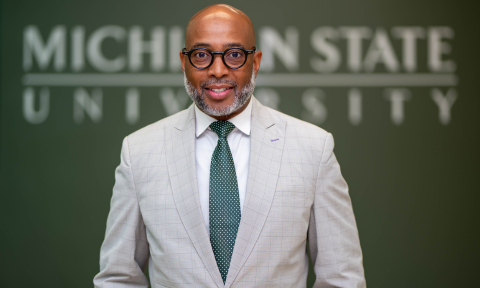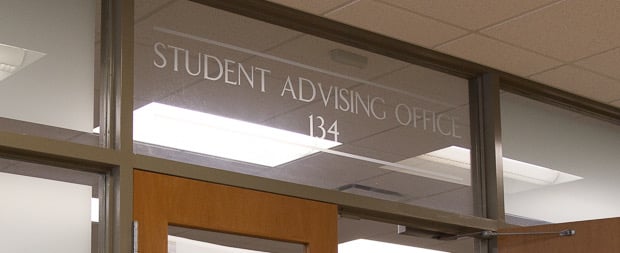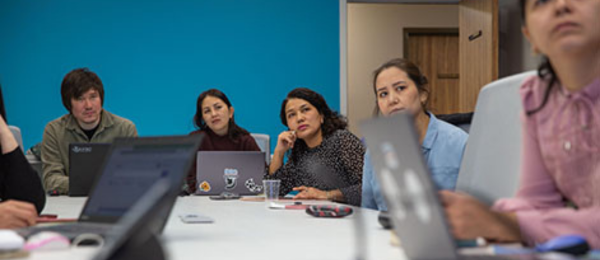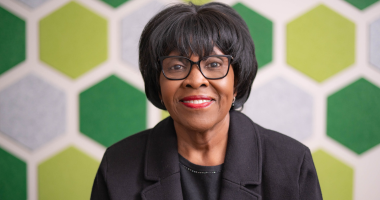Believing that the future of our educational systems lies in an increasingly interwoven international nexus of institutions and scholars, HALE is strongly committed to preparing its educational professional for the globalized educational world. By integrating classroom learning with broad scholarly and professional cross-border experiences, HALE prepares its students to be fluent in the language and culture of higher education worldwide. HALE offers a range of international opportunities that range from short term study tours, to study abroad programs, to international internships. This page chronicles the wide array of international experiences for HALE students.
HALE International Travel Opportunities
Comparative and International Approaches to Higher and Adult Education
The Department of Educational Administration is pleased to offer three international study experiences with the support of the Center for Higher and Adult Education. In each experience, students have the opportunity to develop knowledge of comparative approaches to the study of higher education and gain professional experiences in the international context. These international study experiences are offered on alternating summer sessions between England, South Africa, and Finland.
Great Britain and the United States
The University of Plymouth and Michigan State University exchange program provides students with opportunities for comparative study of higher and adult education in Great Britain and the United States. During the exchange program, graduate students from the University of Plymouth spend a week in the summer at MSU. In turn, graduate students from HALE travel to England in the summer on a twelve-day study tour visiting various educational institutions within Southwest England, Oxford, and Cambridge. In preparation for and during the exchange, students engage in face-to-face seminars at MSU, online collaborative study, and self-directed study. In addition, the experiential component involves cultural visits that represent both the tradition and the nature of change within the country.
HALE Professional Collaborative Experience in South Africa

The Professional Collaborative Experience in South Africa enables HALE students to link knowledge and skills they gain as scholars and practitioners in higher education to practical issues and challenges in an international context. It is designed to be a professional experience for the HALE students, involving collaborative projects with colleagues in South Africa. A primary goal is mutual learning—HALE students and faculty learn about higher education in another country, how to engage in organizational analysis with sensitivity to local culture and context, and how to relate specific theoretical and content knowledge to actual issues and problems. At the same time, the South African colleagues have the opportunity to participate in professional development workshops on timely issues in higher education, facilitated by MSU student/ faculty teams. The MSU team focuses their work at Nelson Mandela Metropolitan University. The trip also includes experiences in Port Elizabeth and Cape Town to deepen understanding of the cultural context of South Africa.
Finland and the United States: A Comparison of Decentralized and Ministry-Based Higher Education Systems
The purpose of the Finnish experience is to allow graduate students the opportunity to study a ministry-based higher education system which is vastly different from the American higher education system. The ministry-based model is common in many countries throughout the world and is undergoing dramatic changes in the roles of the ministry and the universities. Students learn about the substantial implications of these changes for Finnish universities.
College of Education Fellowships to Enhance Global Understanding
Graduate students in their first three years of doctoral study in any of the College of Education’s doctoral programs, including Higher, Adult, and Lifelong Education, may apply for a spot on one of four College sponsored international study tours (currently trips take place in Botswana, China, Cyprus, and Vietnam). The trips immerse students in cultures very different from their own and provide unique opportunities to learn about aspects of the host nation’s educational system including teaching practices and curriculum and policies from teachers and administrators. Students often engage in discussions relevant to their own interests with faculty and graduate students at a partnering university.
Currently the college covers the costs of travel and housing for each qualified, full-time doctoral candidate to participate in one trip. Additional expenses may also be covered. Unlike the other international experiences open to HALE students, the Fellowships to Enhance Global Understanding are not offered for course credit.
International Research by HALE Students
Stacy Clause, Japan (HALE Ph.D.)
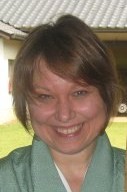
While working in Japan as an English language instructor, Stacy Clause took up the sport of Japanese archery. This activity formed her interest in adult learning, particularly in the setting of community or sports centers, as opposed to colleges or universities. The larger context of her work is the concept of lifelong learning worldwide, particularly informal and non-formal learning, and how those ideas are represented in practice around the world.
Ngoc Lan Thi Dang, Vietnam (HALE Ph.D.)
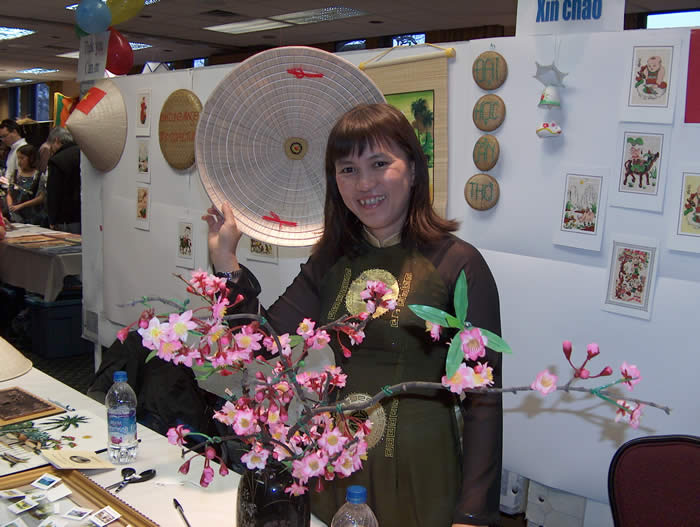
Ms. Dang was a full-time international relations officer and a part-time English teacher at Can Tho University in the Mekong Delta in southern Vietnam for more than twelve years before coming to MSU in the fall of 2007 to pursue her Ph.D. In the summer of 2009, she spent six weeks in the Mekong Delta to do a pilot study on the experiences of women in higher education as they advanced into key leadership positions. She met with fifteen potential participants, two deans, one vice dean, and three directors of support departments at two public universities and one community college. Ms. Dang came back to the Mekong Delta for seven weeks in 2010. This time she developed two comprehensive interview protocols, one for the women leaders and the other for the gatekeepers, the rectors, vice rectors, and top leaders of the Communist Party standing committees at these women’s institutions who played the pivotal role in recommending, reviewing, and appointing these women to their existing leadership positions. By the end of her trip, she had added seven more mid-level women leaders to her research sample, who were deans, vice deans, chairs of specialized departments, directors, and deputy directors of support departments and services centers, and two gatekeepers. The purpose of the interviews was to learn about these women’s career advancement experiences from their own perspectives and the perspectives of their male superiors. Finally, in January 2011, Ms. Dang traveled back to the Mekong Delta toconduct field research for her dissertation.
Cierra Gillison (SAA M.A.)
Through an alumni association tour co-sponsored by The Ohio State University, Ms. Gillison traveled to eleven different European countries to explore European higher education. Her research primarily focused on the historical and political foundations shared between American and European higher education, and the campus culture of the London, Austrian, and Switzerland institutions. She delved further into a discussion of the United Kingdom’s admissions process and researched two Cambridge institutions. Ms. Gillison compared European higher education’s learning philosophy alignment with foundational student affairs documents, such as Learning Reconsidered 2 and Good Practices in Student Affairs, to develop recommendations for practice within the European higher education system.
Imam Wahyudi Karimullah, Indonesia (HALE M.A.)
Imam Wahyudi Karimullah is currently doing an independent study on the Nature of Graduate Education and the Role of Master’s Theses. His personal experience on observing graduate higher education practice outside the Unites States at an Indonesian postsecondary education institution (the State Islamic University of Malang, Indonesia) has driven him to conduct a study on comparative education. Specifically, why do all M.A. students at UIN Malang have to write a master’s thesis to complete their degree, while at HALE M.A. program, students are not required to do so?
John Mendendorp, China (HALE Ph.D.)
In 2011, Mr. Mendendorp spent six weeks conducting pilot interviews at Beijing Normal University in cooperation with the faculty of education. While there he studied scholar recruitment policies implemented by the Chinese government in order to return expatriate Chinese scholars to Chinese institutions. The concept of “brain drain” has been shown negatively to effect the socio-economic development of emerging economies. As studies have shown, higher education is known to be a key factor in economic development. Attracting foreign-trained scholars back to home institutions is, therefore, important. Mr. Mendendorp is currently working on a year-long Fulbright proposal to return to China to further his research at Beijing Normal University and to expand the study to Peking and Tsinghua Universities.
Siti Fazriah Raja Mohamed, Malaysia (HALE Ph.D.)
Ms. Raja Mohamed spent the summer in Malaysia developing a baseline study with two objectives: first to understand the Malaysian graduates’ generic skills, and second to construct the literature review of generic skills. She attended three seminars and one National Congress that helped her enhance knowledge and assessment of generic skills and the needs of the nation for a quality graduates. She also conducted interviews with four stakeholders in the process of understanding the concepts of generic skills amongst Malaysian graduates. The interviewees were two officers from both private and public sectors that deal with hiring Malaysian graduates for their organizations, and two well-known professors in curriculum development and assessment of generic skills. Ms. Raja Mohamed also conducted two interviews with officers from the Student Development Department, Ministry of Higher Education Malaysia.
Saadia Panni, Pakistan (HALE Ph.D.)
Ms. Panni is exploring the role of student organizations in developing student leadership in the universities of Rawalpindi/Islamabad in Pakistan. She specifically sought to shed light on student involvement in student organizations, unions and committees for their leadership development. For this purpose, the study was aimed at drawing upon the contextual nature of student leadership development in Pakistani universities, and providing insights into role of higher education institutes in Pakistan in developing global student leaders. A mixed-methods research was designed to study how college students develop leadership skills; how student organizations develop leadership skills among students, and what role student organizations play in developing student leadership. Survey method, interviews and observational study were employed on randomly selected administrators, teachers and students, who had an experience of working in student organizations at the university level. Both quantitative and qualitative data were collected from a sample of eight public and semi-public universities, which will be analyzed in the next summer semester. The results and recommendations will be published to inform the higher education institutions policies and practices for developing student leadership as well as to augment further research in the field to help fill the gaps in Pakistan’s context.
Hoa Pham, Vietnam (HALE Ph.D.)
In summer 2010, Ms. Pham spent five weeks in Vietnam to work on the project “The role of administrators in policy making and implementation”. She had an opportunity to work with administrators at different levels, including senior officers at the Ministry of Education and Training, deans of different faculties and departments, and vice-rectors at Nha Trang University and University of Danang. Ms. Pham learned that administrators at department and university levels were more open to discussion about this topic and they were critical about the way to collaborate between the Ministry and universities in making decisions related to regulations and policies and how to implement them. However, people at the Ministry were very sensitive to discussions on the same issues.
Andrea Sell, United Kingdom, Belgium, Luxembourg (SAA M.A.)
With the globalization of curriculum, services, students, and faculty, Ms. Sell found the exploration of international university systems and practices paramount to understanding the future of student affairs and the increasingly transient Higher Education sector. She enrolled in Miami University and Bowling Green State University’s collaborative United Kingdom and European Union course for student affairs graduate students offered by faculty members Dr. Judy Rogers and Dr. Michael Coomes. Forty students, representing approximately ten student affairs programs, traveled to England, Belgium, and Luxembourg, with Dr. Rogers and Dr. Coomes visiting local and branch institutions as well as the European Commission. The group met with student services practitioners and their students, administration from the UK’s Universities Colleges Admissions Service, and concluded the three week experience with an international trans-dialogue conference in Luxembourg City. The three week course was an investigation of the differing roles of student affairs/services in the European context. Ms. Sell learned about the common student application system in the UK, the heightened role of students’ unions, the wave of international student enrollment, the experience of domestic/international students abroad, and the tuition/funding changes and their effects in the UK.
Leslie Jo Shelton, Canada (HALE Ph.D.)
While living in Canada for two months over the summer, Ms. Shelton had the opportunity to network with leading international higher education scholars while completing an independent study research project and a paper for a workshop held at her host institution. The independent study research project examined how Canadian human rights policies impact campus climate for queer-identified students at a public institution in British Columbia. Ms. Shelton had the opportunity to meet with local stakeholders who work to refine and implement university policy regarding issues of access and equity for students, faculty, and staff. For the second project, she completed a paper that was accepted to a master class in the Liu Institute for Global Issues. This work focused on intersecting marginalized identities and policy impacting campus climate for queer-identified students of color. These experiences were each a piece of a larger puzzle that shed light on the current state of policy as it impacts higher education and campus climate for diverse student populations in an international context.
Pamela Roy, South Africa (HALE Ph.D.)
In 2010, Pamela Roy conducted an independent research study at the University of KwaZulu-Natal to examine how one group of historically disadvantaged academic women, Indian South Africans in Science, Technology, Engineering, & Mathematics (STEM) fields, defined their identities and experienced success in post-apartheid South African higher education. In-depth, qualitative, individual interviews were conducted with 24 academic women over the course of seven weeks while she lived in Durban, South Africa. Additionally, Ms. Roy had the opportunity to visit several South African universities, engage in informal dialogue with academics, administrators, students, and community members which ultimately increased her knowledge and awareness of local issues, higher education policies and practices, and the socio-cultural-historical-geographical landscape of the nation. Informal conversations with representatives from the National Research Foundation, Human Science Research Council, and South African Women in Science and Engineering Organization also informed her thinking about the research topic. The opportunity significantly influenced scholarly and professional growth as well served as the catalyst for Ms. Roy’s dissertation, which focuses on the career development of academic Women of Color at research-oriented universities in South Africa.
Zachary Tobin, Qatar and North Korea (SAA M.A.)
Following Mr. Tobin’s participation in the South Africa collaborative experience with the HALE program he engaged several weeks of independent travel including a tour of the campus of Education City in Doha, Qatar. Mr. Tobin then took part in an educational non-profit delegation trip to North Korea through the Pyongyang Project. Prior to entering North Korea, the delegation (consisting of both graduate and undergraduate students) met with Chinese faculty and students from Peking University to discuss and gain further insight into the geopolitical realities present in northeast Asia. Once in North Korea, the delegation aimed to positively engage with as many North Korean citizens as possible. Mr. Tobin had the chance to visit two universities in North Korea: Kim Il Sung University and Wonsan Agricultural College. During these visits, he was able to further explore the nature of access and quality of higher education by speaking with both staff and students. While rewarding to positively interact with a population who is isolated by their government, the limitations faced in both the scope and nature of questions he could ask was challenging from an academic perspective.
